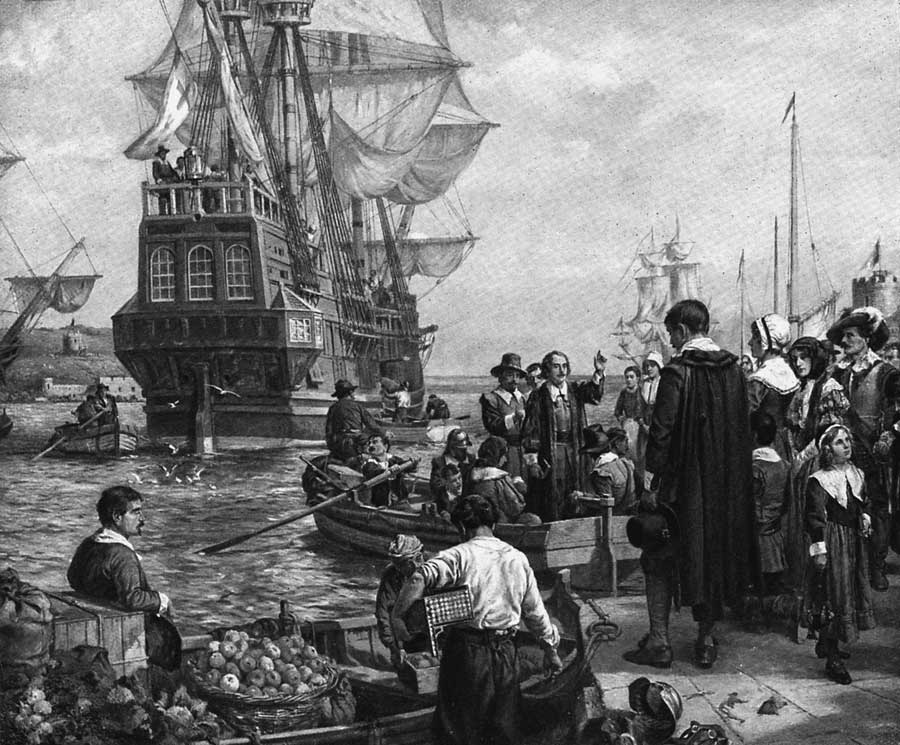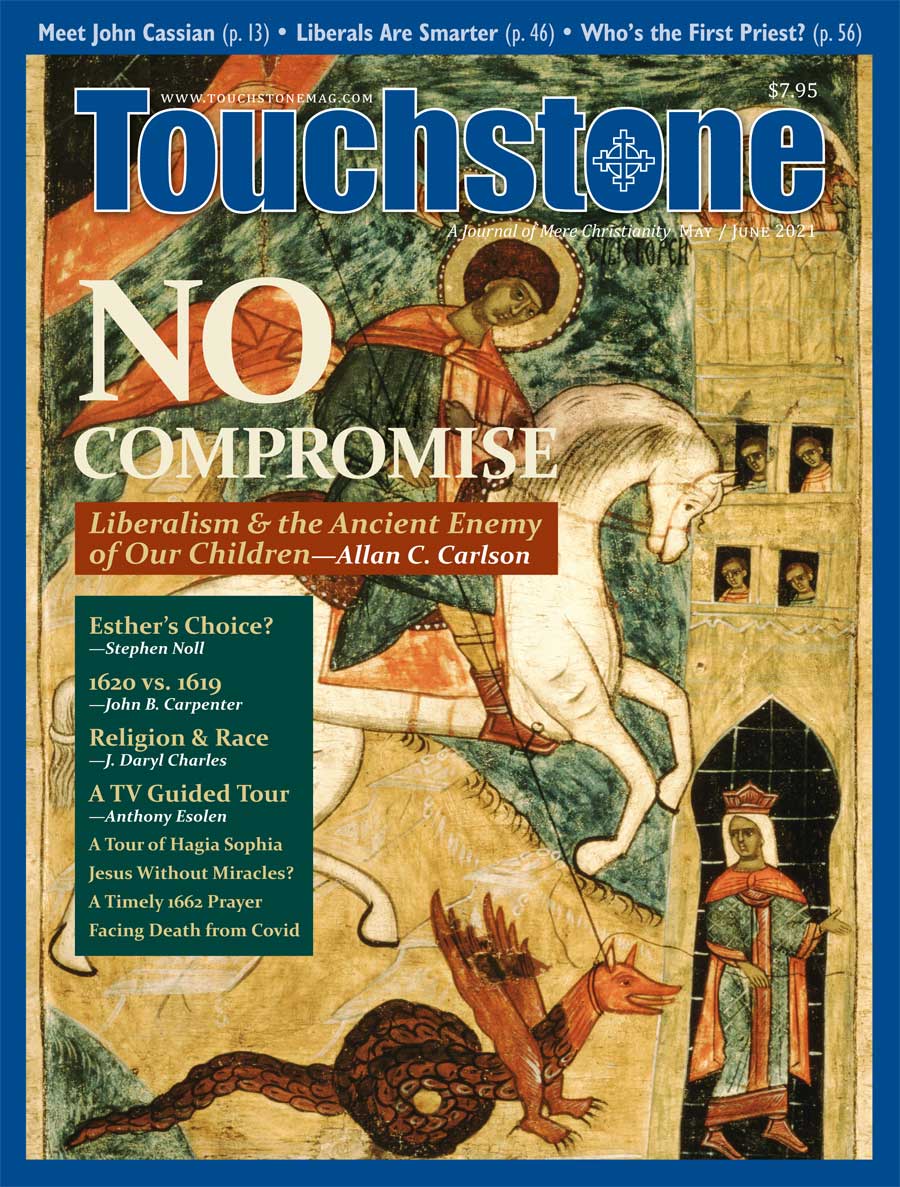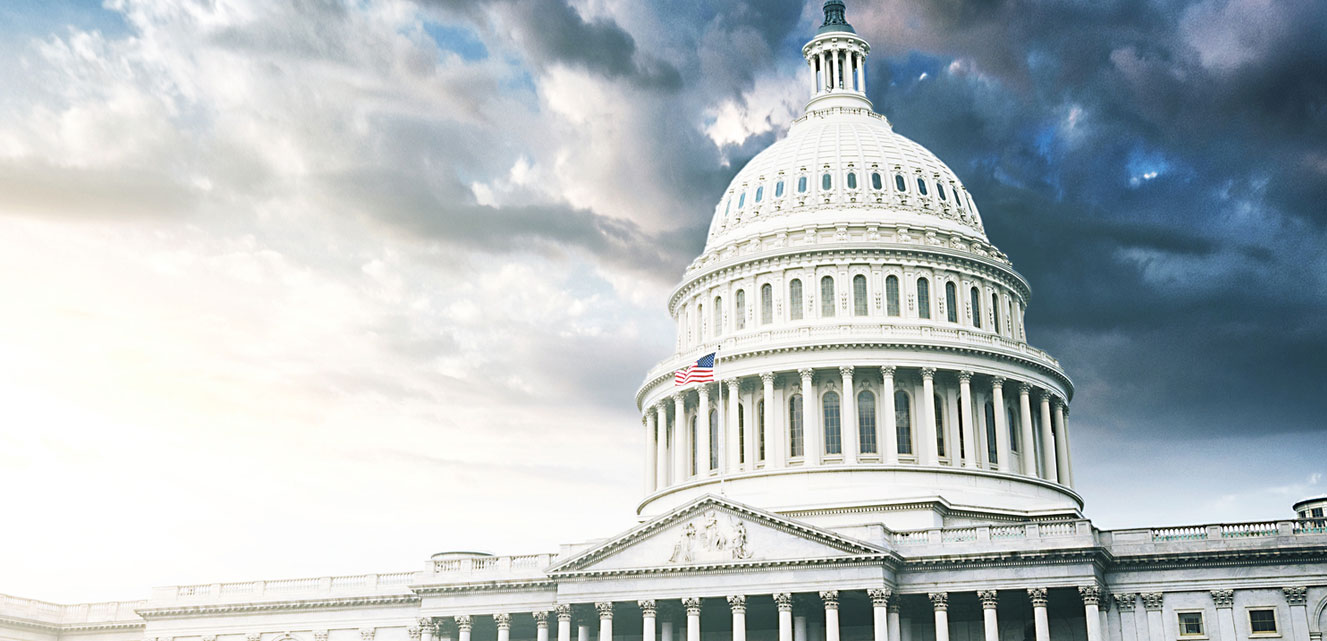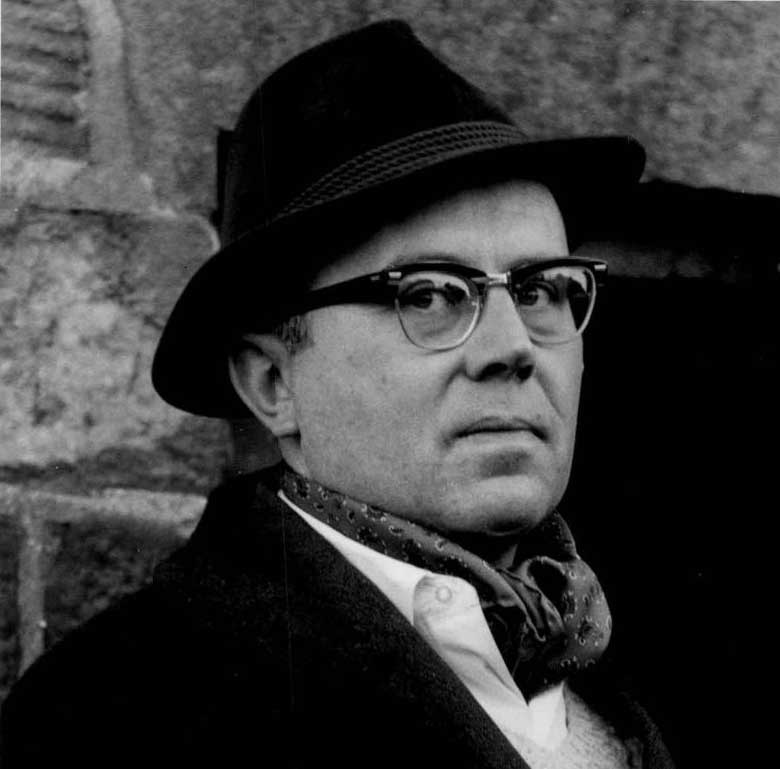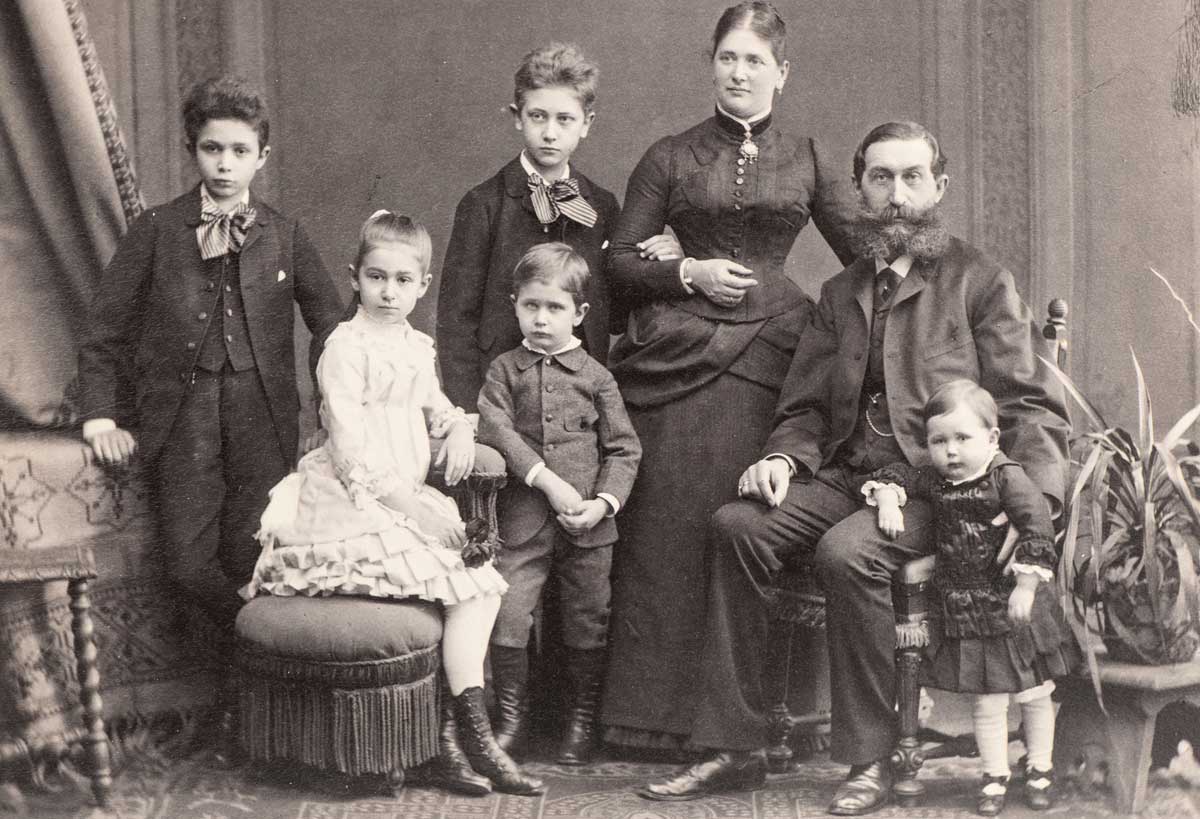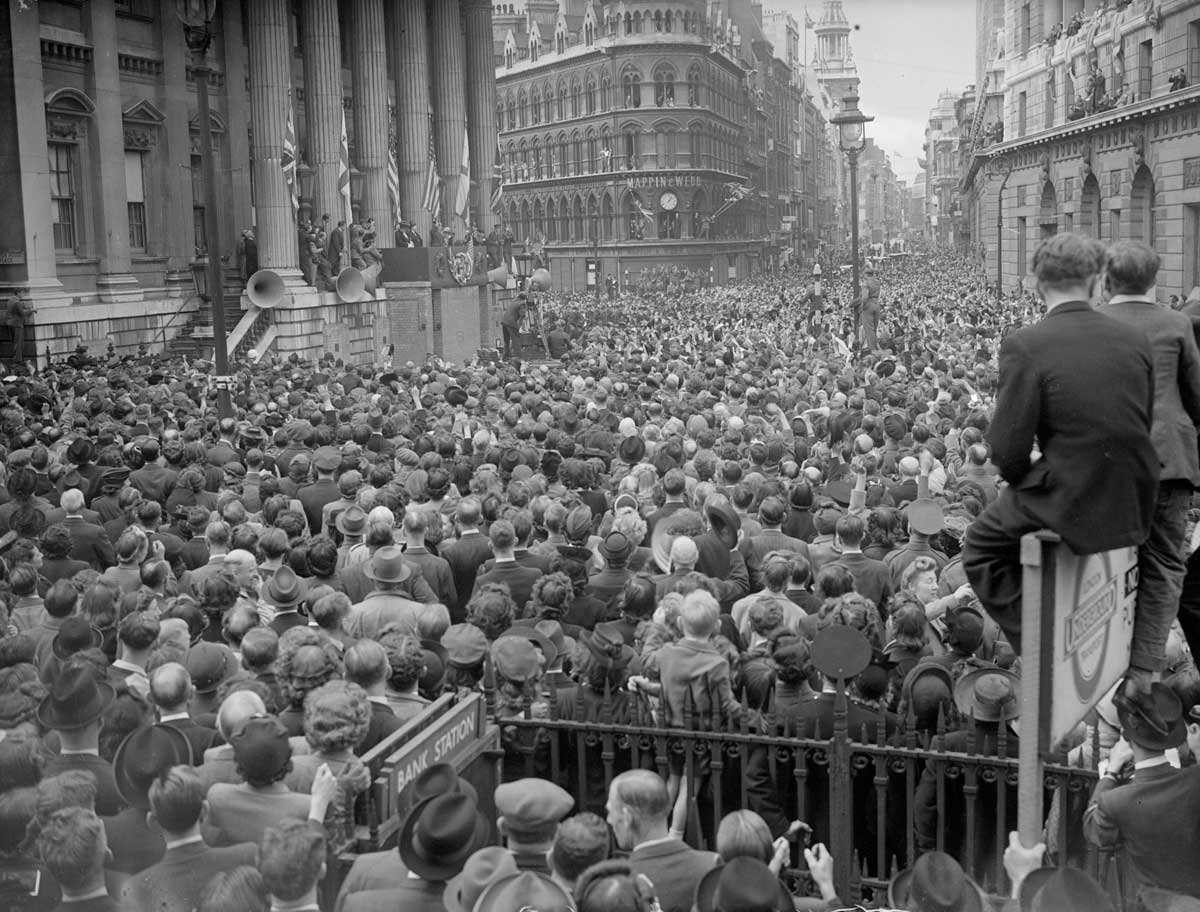The 1620 Project
Puritanism & the Ideological Founding of America
by John B. Carpenter
In August 2019 the New York Times set out to revolutionize American history by re-centering the origin of the United States not on the Declaration of Independence signed in 1776 but on the arrival of the first African slaves in Virginia in 1619. The paper boldly proclaimed that it "aim[ed] to reframe the country's history by placing the consequences of slavery and the contributions of black Americans at the very center of our national narrative." According to the Times, 1619 was not just a landmark in American history but "the country's very origin" (Jake Silverstein, "Why We Published The 1619 Project," December 20, 2019). Is that a center that can hold?
Those with even a superficial knowledge of American history should immediately notice some problems. For one thing, 1619 is twelve years after the founding of Jamestown. Though not exactly thriving, that colony had been established and had survived for a dozen years without slaves.
But more to the point, why should Virginia be considered the defining colony for America? True, it was chronologically first, but unless it is proven that the other colonies were derived from Jamestown, that fact of history is largely inconsequential. In 986, Norsemen settled Greenland, technically in North America, and Bjarni Herjólfsson even sighted mainland North America, but it would be ridiculous to start a 986 Project and argue that the United States' real founding is from the Norse. It's not who did something first; it's who set off the chain of events, political or ideological, that resulted in the end product. Those people are the founders.
So, who founded America?
The Missing Quadricentennial
Remember the hoopla last year surrounding the 400th anniversary of the founding of Plymouth Plantation? Me neither—although I had hoped that the quadricentennial of the first Puritan colony in America would provoke American Christians to launch a 1620 Project. One organization, the National Association of Scholars, did indeed do that. But apart from that modest effort, I've been underwhelmed. Thanks to the 1619 Project, many Americans now know the date on which the first slaves arrived in Jamestown, but thanks to the nearly complete lack of celebration of Plymouth's anniversary, they still don't know what project was begun in 1620, or even that a project was begun in that year.
Scholarship on the New England Puritans occupies a weird place in history. Many specialists have written fine histories of the Puritans themselves, but almost no one has described what was derived from those Puritans, as though nothing of significance out-lived their movement. There is almost no integration of Puritan New England history with the rest of American history. Or with church history—the lively Lion Handbook, The History of Christianity, for example, says nothing at all about the New England Puritans.
Many Americans have almost no understanding of the colonial period, of the century-and-a-half of history that transpired in America before 1776. If they did, they might realize that the 1619 Project was right about one thing: the true founding of America—or at least of a major strand of America—wasn't in 1776. But they were off by one year. It's actually 1620.
Cynicism for Religion
Given the new nihilism exemplified by the 1619 Project, not to mention a generation of political correctness and a "cancel culture" that has trained many Americans in what they can and cannot say, it's no surprise that we're frequently unable to cultivate in skeptics even an ambiguous respect for the contributions of religion to our heritage. "Religion ruins everything!" some assert, even on the campuses of universities, like Harvard and Yale, that were founded by the Puritans who began to arrive in 1620.
Karl Marx sat in a British library when he wrote, "Religion is the opiate of the masses." If he had only bothered to pick up a volume on seventeenth-century English history, he would have learned what a nonsensical proposition that is. Now that we have crossed—without ceremony—the quadricentennial of the Puritans founding their first colony in what was to become the United States, we need to examine again the foundations they laid. This is especially important because various brands of postmodern philosophy have obscured the ability of the Western intelligentsia to understand the American founding. Though Marx's economic prescriptions are largely discredited now, the general attitude of the Western academy is still deeply, if ambiguously, influenced by his dismissal of religion.
Vestiges of Marxist suspicion of religion have produced what some call, perhaps clumsily, "cultural Marxism." The result is that religion—or perhaps one's personally disliked form of religion—is blamed for slavery and racism. Anthony Bradley, a professor of religion at King's College, tweeted on September 10, 2020: "If 17th & 18th [century] Puritans were in the US in 2020, they'd be the leaders of the Alt-Right, Arian [sic]
nation, white supremacist Christian organizations." Quite a claim. He's apparently unaware—or simply refuses to accept—that the abolition movement was birthed by Puritans and their spiritual children. The economist Robert W. Fogel (1926–2013) discovered that.
Fogel was nurtured in America's elite academies, first as an active communist and then as a professor of economics. He was also my boss at the University of Chicago.
Seven years ago, in Touchstone, I told the story of how this self-professed "secular Jew" became an inadvertent Christian apologist ("An Unexpected Apologist," July/August 2014). When Fogel began his work, he expected to confirm what had been the assumption ever since Adam Smith's Wealth of Nations: that slavery was economically inefficient and doomed to self-destruction, being mainly the pursuit of indolent pseudo-aristocrats who loved lording it over their fellowman. To his surprise, he discovered the opposite.
Fogel learned that the morally reprehensible institution was actually highly profitable and efficient. It frequently provided slaves with a higher standard of living than the average free white farmer could maintain, while also demanding less labor; and it gave slaves a longer life-span than most European or American city-dwellers of the time enjoyed. Fogel concluded, therefore, that it was not economic forces that brought about the end of slavery but a revolution in moral sentiment, and that sentiment had its roots in Puritanism.
In a Nobel-Prize-winning work, Fogel chronicled the campaign of devoutly religious people to end an oppressive practice that mere economic forces would not have curtailed. He confessed to me his great surprise at discovering this. He recalled that he, like many in his generation, had absorbed Marx's cynicism for religion. Fogel was then in his fifties, a leading scholar at one of America's elite universities, and yet he had never known what put an end to the greatest assault on liberty ever devised: slavery.
The Puritans' Motives
The "Pilgrims" and their Puritan brothers did not establish colonies in New England just to have a haven from religious tyranny in their homeland. (The "freedom" strand may actually belong to Pennsylvania.) Rather, they crossed "the rude waves" to be free to live out their faith to its fullest.
The Pilgrims who arrived in 1620 were separatist. Having been persecuted in England for splitting off from the established Church of England, they fled to New England to be free to have their separate churches.
The mainstream Puritans, on the other hand, came to New England so they could be free not to separate. Arriving with the beginning of the "Great Migration" in 1630, they believed in the same theology as the Pilgrims but sought to reform the Church of England from within. They, too, were persecuted and came to New England to be free to establish their pure (hence "Puritan") churches. When they arrived, they had before them the model of the separatists at Plymouth, the Pilgrims of Thanksgiving fame. They adopted the separatists' polity without imbibing their separatist spirit.
Over time, especially after the English Restoration in 1660, the two groups realized that their different opinions about separating from the established church were irrelevant now that they were both separated from "Merrie Olde England" by the Atlantic Ocean. They merged, and hence, the 1620 founding can rightly be seen as the beginning of Puritanism in America.
In April 1630, aboard ship somewhere between Boston, England, and what was to become Boston, Massachusetts, John Winthrop told his fellow Puritans that they were going to plant "a City upon a Hill," drawing on Matthew 5:14. A city upon a hill, like a lamp, cannot be hid. A city upon a hill is prominent, for all to see; like salt, it is meant to preserve and season all it comes into contact with. In that sermon, entitled "A Model of Christian Charity," Winthrop reminded the migrants of Jesus' call to "let your light so shine before men, that they may see your good works and glorify your Father which is in heaven." Hence, the New England Puritans were not retreating to a haven, hoping to be left alone; they were missionaries intent on setting up a light to the nations. Winthrop told them, "The eyes of all people are upon us."
Too often, their motivations are thought of as only a one-dimensional quest to be free from (established) religion, when actually they longed to be free for religion. Increase Mather, the leading Puritan of the second generation in New England, wrote reverently:
It was a great and high undertaking of our fathers when they ventured themselves and their little ones upon the rude waves of the vast ocean that so they might follow the Lord into his land. A parallel instance not to be given except that our father Abraham from Ur of the Chaldees or that of his seed from the land of Egypt. (from The Necessity of Reformation, 1679)
It was in respect to some worldly accommodation that other Plantations were erected, but Religion and not the World was that which our fathers came hither for. . . . Pure Worship and Ordinances without the mixture of human inventions was that which the first fathers of this colony designed in their coming hither. We are the children of the good old non-conformists. (emphasis in original; as quoted in Bernard Bailyn, The New England Merchants of the Seventeenth Century)
The Puritans' Purpose
Notably, the Puritans came with their children, for they were intent not just to work but to start a new society. They did not come for "worldly" reasons like business, as the colonists in Virginia did, but for pious ones. It is true that some among them came merely for land, for commerce, or for a fresh start, just as some among the Jamestown settlers were devout Christians. There were individual exceptions in both strands. But the main question is: What was the colony as a whole committed to? There should be no doubt that the "City upon a Hill," the "plantation of religion," was to be built, brick by brick, on the principles of Puritanism.
The cynic still asks, "Were these claims true or merely religious rhetoric to cover what was just as much a commercial enterprise as Jamestown?" Was 1620 really "a great and high undertaking"? The initial immigration patterns suggest that it was. Mather's claim that those headed for New England brought their children with them (unlike those bound for Jamestown) is substantiated by ships' records.
John Demos's Remarkable Providences contains data that make for an illuminating comparison. The two -Virginia-bound ships of 1607 had a male-to-female ratio of 4.18 to 1, while the New England-bound vessel of 1620 was near parity at 1.32 to 1. Age differentials in the two groups also highlight the predominance of families in New England. Among the Virginia colonists, 89.5 percent were between the ages of 16 and 32, while only 4 percent were over 40. Only one child sailed to Virginia, indicating a nearly complete absence of families heading to the "Plantation of Trade." In stark contrast, only 32 percent of the Puritans sailing to New England were in that prime working age of 16 to 32.
This reality would have enormous implications on which colony—Virginia or Massachusetts—would be able to people the later United States. The colony that produced the most descendants would be most likely to shape the future country. In addition, the presence of women in a community, besides having the obvious advantage of enabling reproduction, also has the effect of improving nutrition for children and men. Better nutrition results in lower mortality. New England had exceptionally low mortality rates and high birthrates throughout the colonial period (David Galenson, "The Settlement and Growth of the Colonies," The Cambridge Economic History of the United States). Strikingly, 90 percent of the children living in Andover and Plymouth, Massachusetts, during the seventeenth century survived to become parents themselves, while in Europe, only about half of all children reached child-bearing age (James A. Henretta, The Evolution of American Society, 1700-1815).
Because of their family ethic, Puritan settlers hit the ground running, with whole families to support them. Meanwhile in Virginia, the lack of children also meant a lack of free labor, which created the demand met by the arrival of the first slave ship in 1619. New England, while it would make some room for slaves, never had nearly the demand for them that the Southern colonies, founded for commerce, did.
Intact families gave Puritan New England two qualities that would make its strand in the early American tapestry the dominant one. First, the habits of domesticity, including the passing down of religious values, could be carried on without interruption. One can draw a straight line between the zeal of English Puritans and the shape of American culture coming out of New England.
Second, the New England family made possible one of Puritanism's most powerful cultural weapons: a population bomb. Although immigration to New England fell off rapidly after the calling of the Long Parliament in 1640, the colony's population remained relatively high. Of the four regions of British North America—New England, the Middle Atlantic, the Upper South (including Virginia), and the Lower South—New England had the largest free white population (Galenson).
This demographic dominance was a fruit of New England's very fruitful families. The region's "population explosion" set in motion the later "Yankee Diaspora," which populated the upper tier of the early United States. William N. Parker estimates that 90 percent of New Englanders in 1790 were descendants of the original Puritans (America and the Wider World). Fogel estimates that by 1820, eighty percent of the population north of the 80th parallel in the United States was "Yankee."
Governed by Faith
Puritans in New England did not separate their faith from politics, education, and culture on the one hand, or from the practical matters of law, economics, and policy on the other. They were in control of their society, and their theology was in control of them. Many of the Puritans' laws were taken directly from the Bible. The statutes regarding capital crimes, for example, were copied verbatim from Leviticus. The Puritan church was established with tax money, and church attendance was required. Elections, meetings of the legislature, and executions were prefaced with sermons.
The only holidays, besides the enforced weekly Sabbath, were Thanksgiving Days and Fast Days (for -repentance and listening to jeremiads), both called spontaneously, in response to providence, the latter occurring about four times as often as the former. Under the original charter of the Massachusetts Bay Colony, only church members could vote. The historian Perry Miller called Puritan Massachusetts a "Bible Commonwealth." Puritan New England was a Protestant Christendom.
Even all this, however, isn't convincing to modern skeptics, so accustomed are they to the compartmentalized religion so common in our secular day. Some point to the fact that only 20 percent of New Englanders were church members in the seventeenth century, compared to nearly two-thirds in the 1970s, and they use this statistic to conclude that 1970s Americans were more devout than the Puritans. Roger Finke and Rodney Stark announce, for instance, that "in the Puritan Commonwealth of Massachusetts religious adherence probably never exceeded 22 percent" (The Churching of America, 1776–1990). But like many others who try to prove rising religious influence on the basis of raw numbers, they make the basic mistake of assuming that the meaning of "membership" has remained the same.
It hasn't. Standards for church membership in seventeenth-century Puritan churches were exceedingly high. Besides agreeing to Puritan doctrine and living a scrupulously moral life (in view of the prying eyes of other members), a prospective member had to give a public account of an experience of salvation. Standards became so prohibitively strict that many second-generation New England Puritans, though orthodox and moral, were unable to qualify for membership, and the "Halfway Covenant" had to be created for them. And, it must be emphasized, nearly all the people, whether formal members or not, were churchgoers.
The drift toward "promiscuous church admissions" crested during the nineteenth-century's so-called Second Great Awakening. Today, even in most conservative Evangelical churches, membership is easily obtained simply by asking for it. Therefore, the 20-percent membership in seventeenth-century New England churches represents a hard core of Puritan stalwarts, while the 1970s' two-thirds includes many, if not mostly, nominal adherents.
The Great Awakening
Hence the Puritans, founded on a committed core of devotees, dominated New England and then revived and spread during the Great Awakening, which broke out about a generation before the American Revolution. When Nehemiah Walter (1663–1750), the successor to the original Puritan missionary John Eliot and the husband of one of Increase Mather's daughters, heard the harbinger of the Great Awakening, George Whitefield, preach, he declared, "Puritanismus redivivus"—"Puritanism revived!" (George Whitefield's Journals).
No less keen an observer and participant than Jonathan Edwards (1703–1758) insisted that the Awakening was the same in kind as the revivals of his Puritan forebears: it is "apparent to all to be the same work," he wrote in The Distinguishing Marks of a Work of the Spirit of God. In the Great Awakening, Edwards believed he was witnessing the Puritan piety of New England's founders revived—1620 redivivus. Church membership records prove that the Awakening deserves the honorific "great," for the impact was numeric as well as spiritual. In Connecticut, for example, over the course of the Awakening, most churches added more new members than in any other five-year period recorded. Many churches ballooned with new converts, some gaining over one hundred members in less than a year (Gerald Moran, Modern Christian Revivals).
Baptists were the big winners, and they answer the question of some modern skeptics: If the 1620 project was so big and successful and then revived prior to the Revolution, where are its exponents now? They're Baptists. Of course, not all of them became Baptists and not all Baptists are derived from them, but a flood of Baptist churches was triggered by the tsunami of the Great Awakening. In 1740, for instance, there were no more than five Calvinistic Baptist churches in New England; before the end of the century, there were 325 Baptist churches, of which the overwhelming majority were Calvinist (Edwin Gaustad, The Great Awakening in New England). By that time, Isaac Backus, himself a convert from Congregationalism, insisted that Baptists were good Puritans, only differing on the meaning and mode of baptism and the role of the state vis-à-vis the church. Baptists would then spread their Puritanism all across the new country.
The Progress of Egalitarianism
Fogel believed that the Awakening was the first in a cycle of advances in egalitarianism in American history. Many historians, such as Harvard's Alan Heimert, have seen that this Puritan revival was pivotal in preparing the ground for a successful revolution. First in New England, then throughout America, the values, ethics, and worldview of Puritanism—which at some point in its growth can be called Evangelicalism—became the dominant cultural force. The skeptical, deistic flavor of the European Enlightenment was overwhelmed in America by the 1620 project. Although it wasn't ruling over a theocratic New England any longer, it hadn't disappeared but had spiritually reawakened, and it went on to reassert itself in the nineteenth century and on into the twentieth. Nor did the spread of the Puritan ethic stop with the end of the "Bible Commonwealths" and their semi-theocracy. The descendants of Puritans assumed roles in government in the new United States, especially on the state and local levels, for the purpose of preserving public morals and encouraging religion generally.
Lyman Beecher, a famous New England revivalist of the early nineteenth century, at first lamented the disestablishment of Connecticut's Congregational church in 1818; but as he mastered the workings of voluntary societies, he saw their possibilities for "influence." Beecher was determined to make societies devoted to abolitionist, missionary, evangelistic, and other causes capable of exerting the same sort of influence the established church once had. Eventually he came to confess that disestablishment was "the best thing that ever happened to the state of Connecticut" and that ministers had actually gained influence since disestablishment (Allen C. Guelzo, Edwards on the Will).
While the Puritan quasi-theocracy gradually dissolved over the period from the Glorious Revolution (1689) to the American one (1776), Puritan values spread farther and deeper into American culture, thanks to what George Marsden calls "culturally aggressive New England Yankees." Both Fogel and Marsden have sketched out the complex confluence of movements in the first half of the nineteenth century by which Northern Protestants eventually coalesced, joining Northern Baptists and Methodists in the new Republican party. "The result," says Marsden, "was that the Republican party had a strong Puritan-evangelical component" (Understanding Fundamentalism and Evangelicalism).
Lighting the Fuse
The mission of that component was to bend society to Christian principles. The mitigation and eventual abolition of slavery was its first great goal. The war that became necessary to achieve that goal is largely responsible for forging the American identity of a nation "of the people, by the people, for the people" that it projects to the world today. That terrible war was the collision between the 1619 strand of America and the 1620 strand.
Slavery was undone by the 1620 project. Although Puritan solidarity was fractured in its homeland, Puritanism spread throughout the new nation. The "evangelicalism" that resulted began to look something like the Protestantism of the nineteenth century, which would teach the country the work ethic and the value of community and family—and lead the fight against slavery.
With their Calvinism, the heralds of the Awakening carried messages that approached modern egalitarianism. The itinerant preacher Andrew Croswell (1708–1785) attracted huge crowds in and around Boston in the spring and summer of 1742, as he decried the cruel treatment of prisoners and denounced slavery. Jonathan Edwards, often condemned for owning slaves, inspired disciples like Samuel Hopkins (1721–1803), who, shaken by the brutal reality of the slave trade, helped light the fuse that led to emancipation. Edwards's own son, Jonathan Edwards the younger, on September 15, 1791, gave an impassioned sermon, based on Jesus' golden rule, condemning slavery. The theological movement birthed by Edwards and the Great Awakening, rekindling the 1620 project, inspired ministers to denounce slavery in their evangelistic preaching.
The result is that they turned the hearts and minds of many, particularly in the North, against slavery. The revived 1620 project turned the new nation so decisively against slavery that in fewer than four score and seven years after the founding of a nation that had tolerated slavery in all thirteen states, it was willing to vote for a (moderately) anti-slavery president, provoking the South to fight for and lose its slaves.
As Robert W. Fogel demonstrated, slavery didn't end because of economics, European humanism, or the "arc of history" inevitably bending toward justice. Slavery was ended because the people in Britain and America were bent toward justice by Christians. To be precise, it was Puritanism that propelled nonconformists across the Atlantic, caused them to flourish in North America, and produced a culture and a movement of churches that would shape a nation and inspire the abolitionist movement.
A Steady Influence
It may be that 1619 marks the beginning of a strand of American identity that we are still reckoning with today. But 1620 brought another strand, on another ship, the Mayflower, that was on a collision course with the 1619 strand.
Sixteen-nineteen's horrible injection of slavery into the American experiment was undone by the project begun in 1620. While it is true that early Puritans did not object to the odd household slave, they based this peculiar institution on economic necessity, not racism. An African slave could be one of the elect—and could be admitted as a church member. In 1698, Cotton Mather baptized two African adult slaves and two African children.
On the other hand, Puritans thought King Charles I of England so reprobate as to deserve decapitation. A theology that teaches that slaves may be elect and that kings may be reprobate is not one that becomes the opiate of the masses. Ultimately, joined by the Quakers, the "left wing of Puritanism" in Pennsylvania, Puritans worked out the implications of their faith and turned against slavery, starting the abolitionist movement. The "peculiar institution" was ended, not by the humanistic ideas of the European Enlightenment, but by a movement that waded ashore in1620.
Timothy Dwight, a grandson of Jonathan Edwards, believed the Puritan era was "a normative era during which the American character and nation were formed" (John R. Fitzmier, New England's Moral Legislator). When a society is shaped by these values, even those who are not particularly devout or orthodox, like Benjamin Franklin or Abraham Lincoln, may be said to have been broadly shaped by them.
Puritan ideology exerted a steady influence on the early American mind. Like the Colorado River running through Arizona, Puritanism carved into the American mind its attitudes and ethics. Puritan beliefs were pressed into the culture persistently for over two hundred years after the founding of Plymouth Plantation.
Meeting a New Challenge
It would be easy to dismiss the 1619 Project as fraudulent, as fiction, not history. It suits a particular agenda to say that America's true founding is 1619, but historically, it's absurd. On the other hand, to pretend that something poisonous wasn't injected into the American bloodstream with the introduction of slavery is also absurd. Jamestown, growing into Virginia, was a major strand of American identity, beginning with its foundation as a "plantation of trade," which in a dozen years readily bought human beings, as if they could be bought. Such a nation grows to profess that "the business of America is business," to champion an ethics of pragmatism, and to measure its presidents against the slogan, "It's the economy, stupid."
This strand of America is still alive. Even the plain facts of biology are dismissed at its whim. That's the new center that cannot hold. Sixteen-nineteen brought the assumption that even if we have to enslave others—or now, kill them in the womb or elsewhere—to secure our comfort, that's our right. My property, my slave, my body, my choice.
This rationale—ironically shouted most loudly today by those who endorse the New York Times'1619 Project—is the same as that created by the earlier incarnation of that same project: some human beings can be arbitrarily classified as non-persons. Back then, it was done to justify their enslavement; today, to justify their abortion. The only change is in the group of human beings chosen to be stripped of their humanity. The question now is whether and how the 1620 strand of America can and will meet this challenge.
We're in a crisis today because the 1619 strand of America is full of passionate intensity while the 1620 strand largely lacks all conviction. The center cannot hold because we don't know which founding is the center.
These two strands were interwoven in 1776. Yes, the United States was founded in 1776 and deserves to be celebrated on July 4th. But America pre-existed the United States by over a century and a half. It had several foundings, several strands, several centers. Even if we concede, which I don't, that 1619 was a founding, there is still 1620.
Those who claim that 1619 is America's crucial founding conclude that America is therefore inherently corrupt, systemically racist, and in need of a re-founding, a re-centering. But rather than boldly go to brave new worlds that promise—without providing—new heights of egalitarianism and justice, America would do better to re-center herself on the founding of four hundred years ago last year.
John B. Carpenter is the pastor of Covenant Reformed Baptist Church in Danville, Virginia. He holds a Ph.D. in church history from the Lutheran School of Theology at Chicago and an M.Div. from Fuller Theological Seminary.
Share this article with non-subscribers:
https://www.touchstonemag.com/archives/article.php?id=34-03-030-f&readcode=10540
subscription options
Order
Print/Online Subscription

Get six issues (one year) of Touchstone PLUS full online access including pdf downloads for only $39.95. That's only $3.34 per month!
Order
Online Only
Subscription

Get a one-year full-access subscription to the Touchstone online archives for only $19.95. That's only $1.66 per month!
bulk subscriptions
Order Touchstone subscriptions in bulk and save $10 per sub! Each subscription includes 6 issues of Touchstone plus full online access to touchstonemag.com—including archives, videos, and pdf downloads of recent issues for only $29.95 each! Great for churches or study groups.
Transactions will be processed on a secure server.
more on America from the online archives
more from the online archives
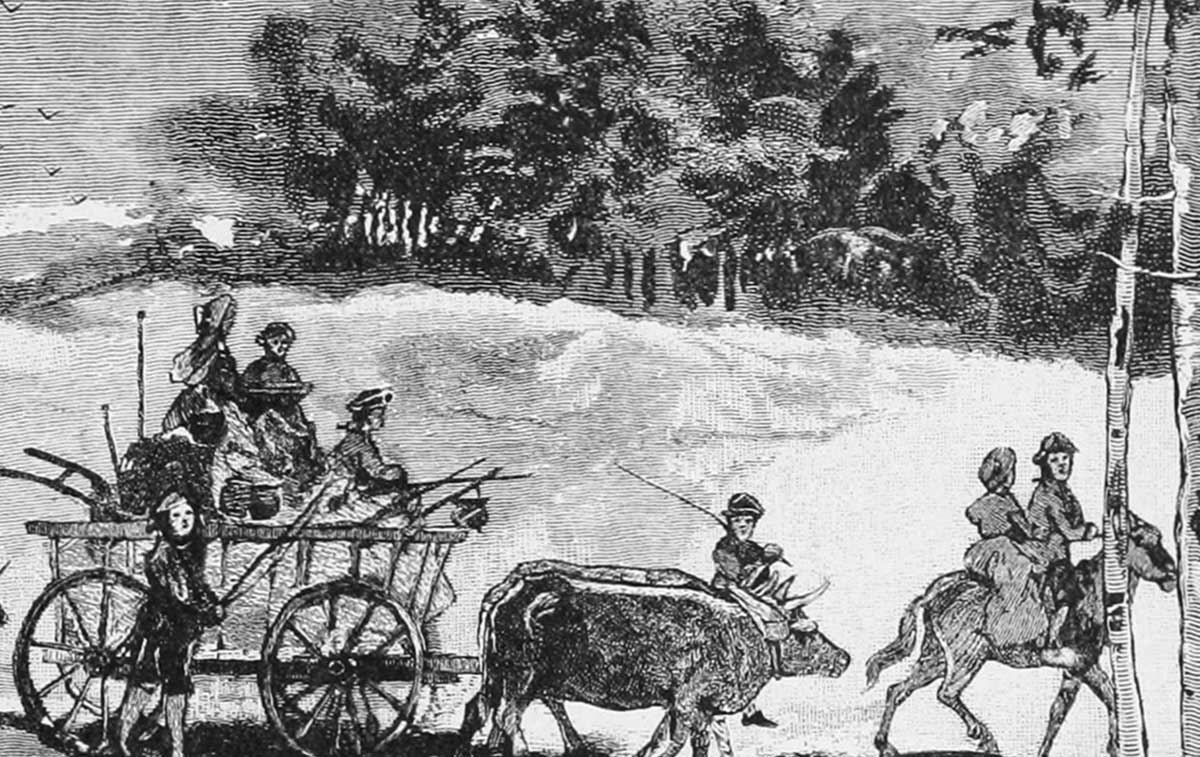
31.5—September/October 2018
Errands into the Moral Wilderness
Forms of Christian Family Witness & Renewal by Allan C. Carlson
calling all readers
Please Donate
"There are magazines worth reading but few worth saving . . . Touchstone is just such a magazine."
—Alice von Hildebrand
"Here we do not concede one square millimeter of territory to falsehood, folly, contemporary sentimentality, or fashion. We speak the truth, and let God be our judge. . . . Touchstone is the one committedly Christian conservative journal."
—Anthony Esolen, Touchstone senior editor






